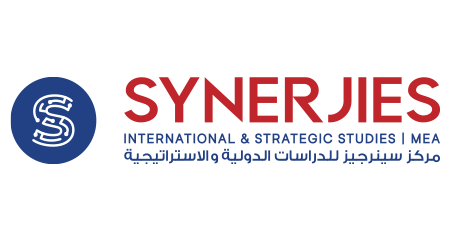The considerations of food & water security, though not new concepts, are gaining criticality on the globe and especially within the region. Egypt as a country has been championing the practice of farming and agriculture for over 7000 years, viewing it as one of the most holy and sacred practices of all times. Fast forward to current times and the modern era of agriculture we can clearly see that agriculture and food security are at crossroads.
Egypt ranked 61st on the Food Security Index scoring 56.3/100 points in 2018, a drop of 1.6 points than the previous year and new data from the World Resource Institute shows Egypt ranking 43 of the top 50 countries under water stress. The U.N. World Water Development report for 2018, warns that Egypt is currently below the U.N.’s threshold of water poverty, it is currently facing water scarcity (1,000 m3 per capita) and dramatically heading towards absolute water scarcity (500 m3 per capita).
With the rising concerns and effects of climate change, and the changing water situation of Egypt due to the construction of Ethiopia’s Grand Renaissance Dam leading to decreased water supply, Egypt must now choose between the continued promotion of an agriculture-based economy or divesting away from agriculture into more economic viable options such as the services or manufacturing industries. One thing is becoming crystal clear, traditional agriculture practices are no longer effective or competitive within the local and global market.
As technology continues to disrupt the agriculture sector, global companies are starting to address the challenges such as rising cost of supplies, shortages of skilled labor, and changes in consumer preferences head-on, leaving developing countries like Egypt at quite a disadvantage. This, however, does not undermine Egypt’s untapped potential for agricultural efficiency and output maximization, if the right policies are put in place and coupled with a boost package and education hubs for farmers.
Our position in Egypt is actually not unique when it comes to the challenges that we are facing for this particularly important sector. We can see it in several countries that are affected by water shortages and increasing periods of drought and encroachment on agriculture land. It is for that precise reason that several nations have started to adopt new initiatives many of which could be easily implemented in Egypt to enhance efficiency of farmland and increase productivity and controlled crop sustainability all this while significantly reducing water consumption.
Technologies such as vertical farming and hydroponics have been demonstrated to provide up to a 30-fold increase of crop yield per acre depending on the type of crop grown. Nanotechnology coupled with sensory systems and precision farming tools have been proven to provide a quick ROI while maximizing crop yield and minimizing water and fertilizer consumption especially in large farms. Controlled indoor farms provide a consistent crop yield throughout the year while using up to 90% less water and can be at times completely automated.
With Egypt facing the odds of decreasing water supply and a non-regenerative groundwater supply a choice is to be made: either we choose to start divesting away from agriculture and heavy water utilizing industries and move more towards a knowledge-based economy relying on the services and industrial sectors, or we boost our agricultural sector and minimize our food and water security risk all while being a hub for food security within the region reaffirming Egypt’s position towards the region as a main pillar for security.
Agriculture is not just about food security but also involves more on the economic and health aspects of the population where access to healthy food significantly reduces the rates of diseases and healthcare cost burdens for the government. The rule is simple: Better agriculture gives a healthy and hence more productive population and increases your export potential while contributing to the economic wellbeing of the general population.
The modernization of Egyptian farming must become the centerpiece of its national strategy and security otherwise maintaining it as a viable non-modernized sector will result in the depletion of Egypt’s most critical resource: Water. The Land of the Nile stands at risk of losing its river Nile unless met with a top-bottom driven initiative to reform the entire sector that results in the utilization of about 70% of Egypt’s water supply.
A government-led stimulus boost package may be the way forward as part of an enlarged initiative to transform Egypt’s old farms into modern and efficient farms providing access to high-tech and vocational training for farmers and long-term coaching by experts.

